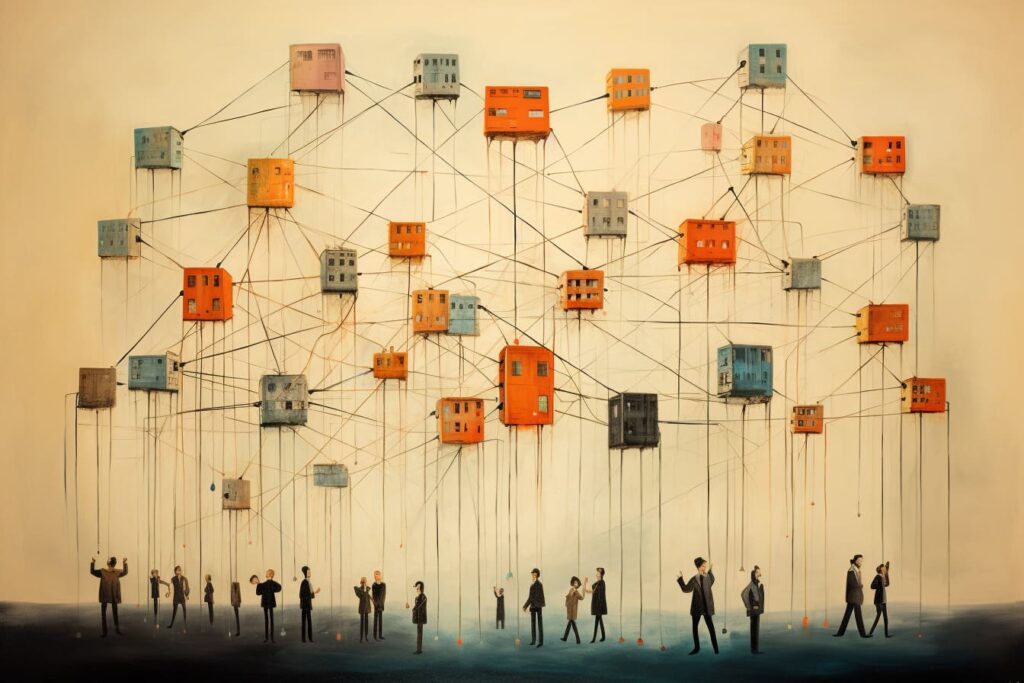Decentralization has been a buzzword in various industries lately, from finance to technology. But have you ever wondered about the psychology behind this concept? How does human behavior change in distributed networks? Well, my curious comrades, sit back, relax, and prepare to dive into the fascinating world of decentralized psychology.
Unleashing the Power of Decentralization: A Tale of Distributed Networks
Decentralization, my friends, is like a wild carnival ride. It’s a rollercoaster of freedom, where power is not concentrated in the hands of a few but spread across a network of individuals. Just like a carnival, it’s a place where everyone has a voice and decisions are made together.
In a centralized system, power resembles a creepy stalker lurking in the shadows, watching your every move. But in a decentralized world, power becomes your trusty sidekick, always there to provide support and guidance. It’s a beautiful dance between individuals, where each step is taken with trust and collaboration.
The Hive Mind: When Bees Teach Us a Thing or Two
To understand the psychology of decentralization, let’s take a cue from our buzzing buddies, the bees. In a beehive, every single bee has a specific role to play. There’s the queen bee, the worker bees, and even the drones. They all have unique tasks, and they work together harmoniously for the greater good of the hive.
Similarly, in a decentralized network, individuals have different roles and responsibilities. They contribute their skills and expertise, forming a hive mind where collective intelligence prevails. It’s a beautiful symphony of diverse talents, creating something more significant than the sum of its parts.
The Dark Side of Decentralization: The Rebel Within
But, my dear readers, just like every carnival has its clowns, decentralization also has its rebels. These rebels can be a double-edged sword. On one hand, they bring innovation, creativity, and much-needed disruption. On the other hand, they can be a bit like the Joker, wreaking havoc and causing chaos.
These rebels challenge the status quo, questioning the existing power structures. They are the disruptors, the black sheep of the decentralized flock. But, oh, how we need them! They keep us on our toes, reminding us not to become complacent in our decentralized utopia.
The Power of Trust: From Strangers to Allies
In a decentralized network, trust becomes the currency of choice. It’s like a secret handshake between strangers, a leap of faith that binds individuals together. Trust is necessary for the decentralized carnival to survive like a house of cards.
Think about it, my friends. When you participate in a decentralized network, you’re putting your trust in strangers. You trust that they will act in the best interest of the collective, just as you do. It’s like a grand social experiment, where trust is the glue that holds everything together.
So, as we navigate the wild world of decentralization, let’s remember to trust our fellow participants. Let’s embrace the power of collaboration, diversity, and shared decision-making. Because, my dear readers, only through trust can we truly unleash the full potential of decentralized networks.
A Pondering for You: Decentralization as the Great Equalizer
As we bid farewell, dear readers, let me leave you with a pondering. Perhaps decentralization is the great equalizer, leveling the playing field and giving power back to the people. It’s a revolution of minds, a rebellion against the traditional power structures that have long reigned supreme.
So, my fellow adventurers in the land of decentralized psychology, let’s continue exploring this brave new world. Let’s embrace the power of trust, collaboration, and rebellion. And who knows, we can create a carnival that’s not just wild and fun but also fair and just.

